Retro Replay Review
Gameplay
Mental Kombat delivers a deceptively simple yet deeply strategic two-player experience that hinges entirely on spatial reasoning and foresight. Players alternate turns using a joystick to shift one of the colored stones on the grid. The goal is straightforward: align four stones of your chosen color consecutively, either horizontally or vertically. What begins as an innocent puzzle quickly spirals into a tense mind game as each move can be turned against you or leveraged to inflict real damage on your opponent.
(HEY YOU!! We hope you enjoy! We try not to run ads. So basically, this is a very expensive hobby running this site. Please consider joining us for updates, forums, and more. Network w/ us to make some cash or friends while retro gaming, and you can win some free retro games for posting. Okay, carry on 👍)
On the Commodore 64, achieving a four-in-a-row immediately ends the match, crowning the victorious strategist. The Atari 2600 version adds another layer by assigning each player an energy meter: lining up stones deals direct damage to your rival’s energy pool. Deplete their energy entirely, and you emerge the winner. This health dynamic transforms every alignment into a high-stakes gamble—sometimes it’s better to disrupt your opponent’s pattern than to build your own.
Adding to the tension is the freedom to move any stone on the board, regardless of color. This open choice means you can inadvertently shift your opponent toward victory or even chip away at your own energy if you’re not careful. Since moves are irreversible, each decision carries long-term weight. Mental Kombat thus rewards both careful planning and opportunistic aggression, making every round a unique mental duel.
Graphics
Mental Kombat embraces the aesthetic strengths and limitations of two classic platforms. On the Commodore 64, the board pops in crisp, blocky sprites with vibrant primary colors for each player’s stones. The high-contrast palette ensures every shift is clearly visible, while simple animations highlight a successful alignment or a thwarted attempt. Backgrounds are minimal, focusing your attention squarely on the strategic battle at hand.
The Atari 2600 version leans into the system’s characteristic charm. You’ll find chunky pixels and a slightly more muted color scheme, but clarity remains paramount. Stones jump convincingly when you shift them, and the energy meters at the top of the screen flash when damage is dealt. While you won’t mistake it for a modern title, the visual feedback is immediate and satisfying, keeping you engaged through the ebb and flow of combat.
Across both platforms, sound design punctuates each move. Shifting a stone produces a sharp click; scoring four in a row unleashes a triumphant jingle or a staccato blast if it’s in the Atari edition, signaling a hit to your opponent’s energy. These audio cues not only heighten the drama but also provide essential information in fast-paced head-to-head matches.
Story
Mental Kombat doesn’t drape its gameplay in a sprawling narrative; instead, it offers an abstract “mental arena” where two combatants vie for supremacy. The title itself hints at the clash of wits—no pixelated warriors or cutscenes, just the crystalline battlefield of colored stones. This minimalism allows you to project your own story onto each match, whether as rival generals, interstellar tacticians, or chess-like masters of the mind.
In lieu of a traditional plot, each round unfolds like a micro-drama. Turn by turn, combatants lay traps, feast on their opponents’ mistakes, and mount daring comebacks. You might imagine pressing forward with a daring vertical strike, only to have your foe repurpose your stones into a diagonal blockade, turning the tides at the last moment. These emergent narratives give Mental Kombat its charm and replay value.
For players craving a deeper cinematic storyline, the game’s bare-bones presentation may feel sparse. However, those who relish open-ended competition will find the lack of a fixed narrative liberating. You won’t be bound by character arcs or forced cutscenes—every win and loss is written by the players themselves.
Overall Experience
Mental Kombat stands out as a compelling test of mind over matter. Its blend of easy-to-learn mechanics and hard-to-master strategy makes it an ideal choice for quick head-to-head bouts or longer tournaments among friends. The game’s dual personalities—instant-win on the Commodore 64 and health-based combat on the Atari 2600—offer distinct flavors that cater to different tastes, from pure puzzle-lovers to those seeking a little extra tension.
While there’s no single-player campaign or AI opponent to practice against, this drawback can be a blessing in social settings. Local multiplayer is where Mental Kombat truly shines: nothing beats the thrill of watching an opponent’s carefully laid plan collapse under a single bold move. Expect laughter, groans, and competitive banter as each side jockeys for positional advantage.
Ultimately, Mental Kombat is a mixed bag of elegant simplicity and heart-racing strategy. It may not boast the graphical fidelity or narrative depth of modern releases, but its design laser-focuses on pure two-player engagement. If you’re hunting for a portable mental battle or a casual living-room showdown, this retro gem is well worth unearthing.
 Retro Replay Retro Replay gaming reviews, news, emulation, geek stuff and more!
Retro Replay Retro Replay gaming reviews, news, emulation, geek stuff and more!
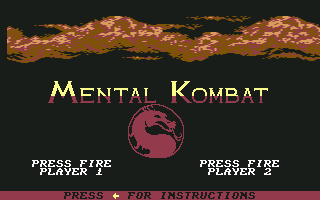
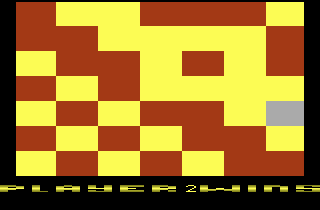
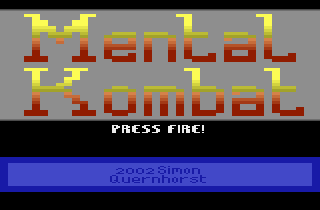
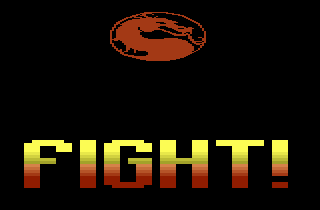
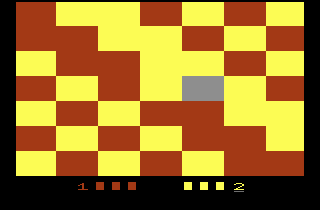
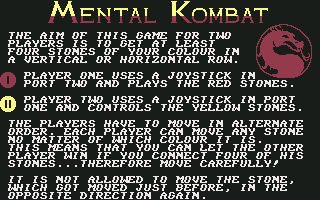



Reviews
There are no reviews yet.